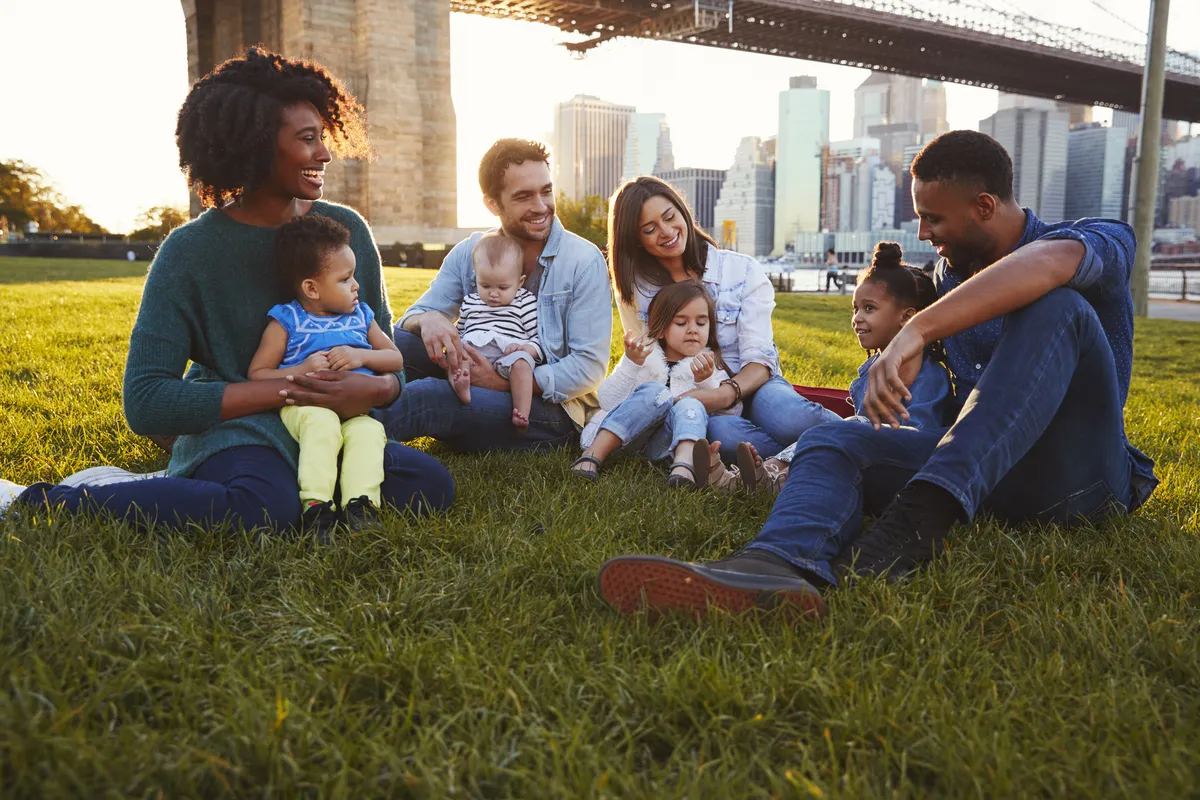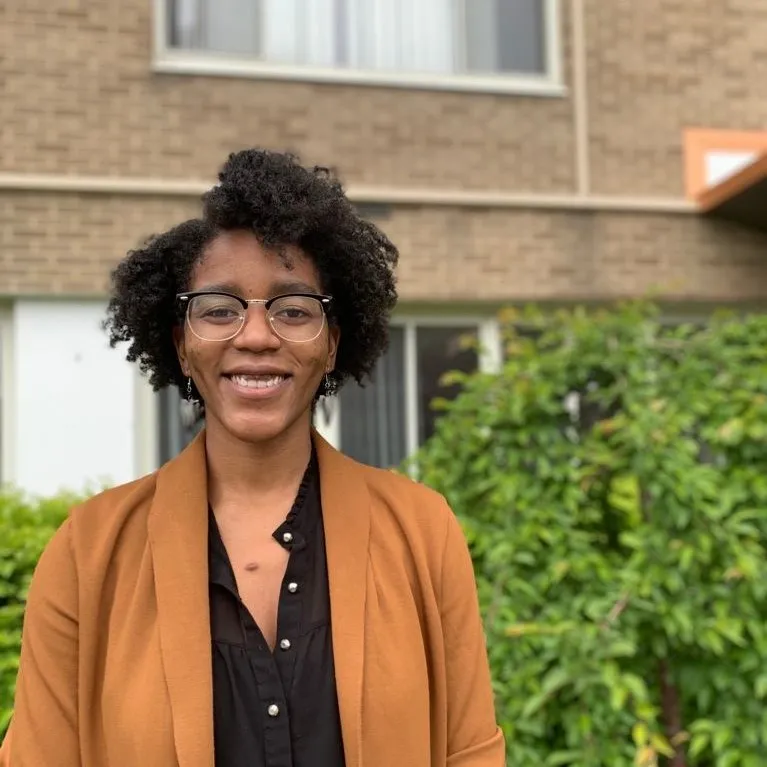👋 Welcome to Starting Early. Every other week, we spotlight new reports, useful news, engaging interviews with people doing important work, and interesting takes on maternal health and early childhood development issues.
The feeling that you “belong” is fundamental to living a happy and healthy life. Without meaningful and high-quality social connections, our mental, physical, and psychological well-being suffers. But belonging has grown more elusive in today’s world. Increased political polarization, economic inequality, and racial injustice — among other things — contribute to greater division and what experts are calling a “crisis of belonging.”
- The feeling of not belonging can lead to loneliness. More than half of US adults report feeling lonely; those with children are especially susceptible to loneliness.
Summer is a wonderful time to rejuvenate. We ask our readers to join the Burke Foundation in pausing, reflecting, and engaging with others to help build belonging by bridging divides and supporting each other.
See you in September. Starting Early will be on break in July and August. In the meantime, follow us on Twitter and LinkedIn to stay up to date with the Burke Foundation and our partners. ☀
Read on and click the links to go deeper.
1 big thing: Belonging is key to well-being

Belonging is essential to mental, emotional, and physical health. Those who feel they belong are more likely to have positive self-esteem, experience less stress and anxiety, and attain higher life satisfaction.
Yet loneliness is rampant in the US — especially among parents. In a survey of North Carolina adults, Capita found that parents are not only lonely, but 1 in 4 lack adequate sources of advice during their child’s critical developmental years. This lack of support can deepen feelings of isolation and loneliness among parents.
- Loneliness is associated with poor mental and physical health. The health impact of loneliness is equivalent to smoking 15 cigarettes a day and is twice as harmful as obesity.
And when parents are lonely, it affects kids too. Parental loneliness influences such child outcomes as poor problem-solving skills, lowered social competence, increased hostility, and fear of negative evaluation.
- In his book, Belonging: The Science of Creating Connection and Bridging Divides, psychology researcher Geoffrey L. Cohen writes: “A powerful parent-child bond allows children to feel nurtured whether they’re physically close to a parent or not…[and have] a ‘secure base’ from which to tackle life’s challenges, a perch from which new situations seem less threatening.”
Why it matters: People who feel they belong are healthier and more likely to participate in civic activities – which can improve quality of life for entire communities. Efforts to build understanding and empathy for others can include:
- Home-visiting peer support for new and expecting parents
- Mentoring programs and improving teacher-student relationships in schools
- Providing affirmations to students and promoting a growth mindset in the classroom
Providing welcoming and warm interactions at healthcare and child care facilities
2. Promoting belonging

With belongingness at an all-time low, initiatives across the country address loneliness and exclusion, and emphasize social connections. We highlight some examples below.
A new place to call home: Pittsburgh-based, Hello Neighbor helps refugee and immigrant families settle in their new community. Services include housing and employment assistance, mentoring, and Smart Start — an initiative providing support to new and expecting parents and families with young children. Smart Start aims to reduce isolation and help families navigate parenthood in a new country by offering:
- Pregnancy and newborn care coordination, postpartum support, and pregnancy and/or infant loss support
- Connections to community resources
- Assistance creating a comprehensive labor plan
- Culturally-tailored perinatal education
- By the numbers: Since its founding in 2017, Hello Neighbor has helped welcome 101 babies— many of whom are the first US citizens in their families.
Community-led early childhood education: Repurposing underused housing stock in the city, Brilliant Detroit creates early child and family hubs designed with, for, and by community members.
- Brilliant Detroit launches new locations only after being invited by local leadership, and community members are a part of every step of the process — sharing input during listening tours and serving on local advisory teams.
- By the numbers: The organization has 12 neighborhood hubs and plans to expand to 24 by 2024.
Brilliant Detroit offers wraparound services for kids 0 to 8, their families, and community members. The community helps determine which programs to offer at each location, including cooking and nutrition education, early literacy, and closets with free clothing.
Relationship-based innovation: CenteringPregnancy brings together small groups of expectant mothers and provides one-on-one time with clinical providers, interactive learning, and health assessments. The model offers a supportive environment that combats social isolation, builds community, and empowers people to share advice, guidance, and wisdom with each other.
- Tearfully, a pregnant New Jersey mom explained to her Centering group that she was alone and didn’t have any nearby family or friends to help. The other participants immediately embraced her with a hug and said, “We’ll be your family.” ❤
Go deeper: Learn about the Burke Foundation’s initiative to expand Centering in New Jersey.
3. Finding and building community
To promote belonging in the US, the Ad Council, Einhorn Collaborative, and other organizations partnered to launch a storytelling project, Belonging Begins with Us. Some highlights:
- Parental support in DC: As a new mom, Maria was anxious about raising her baby without the support of her family and friends in Venezuela. But she found a network of support in her community. She shares, “…fellow mothers from the neighborhood showed me love by welcoming me into parenting groups and offering guidance about doctors, child care, and schools. They became the extended family that I wanted around me to raise my child.” ❤
- A path to self-acceptance in New York: Due to a stutter, Mohammed avoided participating in activities and making friends in high school. The guidance of his speech therapist enabled him to build his confidence. “My stutter has become a core part of who I am,” Mohammed reports. “My speech therapist encouraged me to see my stutter as an opportunity to engage with others who feel left out. Our differences enrich our lives. I celebrate those differences. They strengthen our bonds as humans.” 🤝
Follow @BelongingBegins on Twitter for more impactful stories.
4. One smile to go: Celebrating Kérène 😃

This month, Kérène Kabambi wraps up her two-year term as P55 Fellow for the Burke Foundation. Kérène grew up in a small town in South Dakota before attending Princeton University, where she graduated in 2019 with a degree in sociology. After graduating, Kérène worked for a legal aid nonprofit before joining the Burke Foundation.
On connections and belonging, she reflects on her own journey: “My family is all spread out in our different corners of the world. But having that strong familial support lets you be able to go and move to a new city in the middle of a pandemic and still be okay.”
Kérène’s involvement in college and club sports also helped her develop connections and find her place: “Beyond family, rugby has been a big part of it too. In college, that was my main social group. Even when I moved to Philly, so many of my friends, and even my current roommate, are people that I met through the team.”
Since joining Burke in 2021, Kérène has supported the Foundation’s maternal and infant health initiatives. One of the projects she enjoyed most during her time with Burke was the Community Advisory Committee (CAC) of the New Jersey Birth Equity Funders Alliance.
“Being part of a participatory grantmaking process has been enlightening and shows the different ways philanthropy can be done. It’s been amazing to see how passionate and invested the CAC members are, not just in their own work, but in the work they do together.”
Kérène’s contributions to the Burke Foundation have made us stronger: she worked on more than 30 issues of Starting Early, lending her expertise, research, and writing skills to our efforts to share new ideas and unique solutions in early childhood development.
Kérène, we wish you all the best on the next step in your journey. ⭐❤
The roundup
Learn about upcoming events, new funding opportunities, and jobs in maternal and infant health and early childhood:
- Insights on belonging: Social psychologist Geoffrey Cohen offers useful insights on how to nurture belonging in the Harvard EdCast podcast.
- A public health issue: US Surgeon General Vivek Murthy discusses the crisis of belonging and how to strengthen social connections in the Post Reports podcast.
- Bolster the perinatal workforce: The BRICK Education Network seeks a Healthy Beginnings Assistant Director to support the Perinatal Workforce Pathway of its South Ward Healthy Beginnings Program in Newark. Apply to join the team.
- Save the date: Join Moms First June 28 for the New Jersey Care Policy Symposium: Cross-Sector Conversations & Collaboration. Sponsored by the Burke Foundation and Robert Wood Johnson Foundation, the half-day virtual convening will feature panel discussions from care policy experts in New Jersey and beyond.
- Promoting economic equity: Applications for the Robert Wood Johnson Foundation’s Addressing Structural Barriers to Economic Inclusion for Children and Families funding opportunity are due June 21.
- Inclusive and supportive workplaces: Mother’s Monday released a toolkit to build better workplaces for moms and all caregivers. Download it here.
- Scholarship opportunity: The Partnership for Maternal and Child Health of Northern New Jersey is offering support for doulas and doula trainees to complete the Center for Breastfeeding’s online Lactation Counselor Training Course and register for the CLC Examination. Learn more here.
